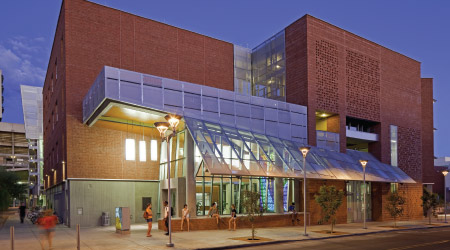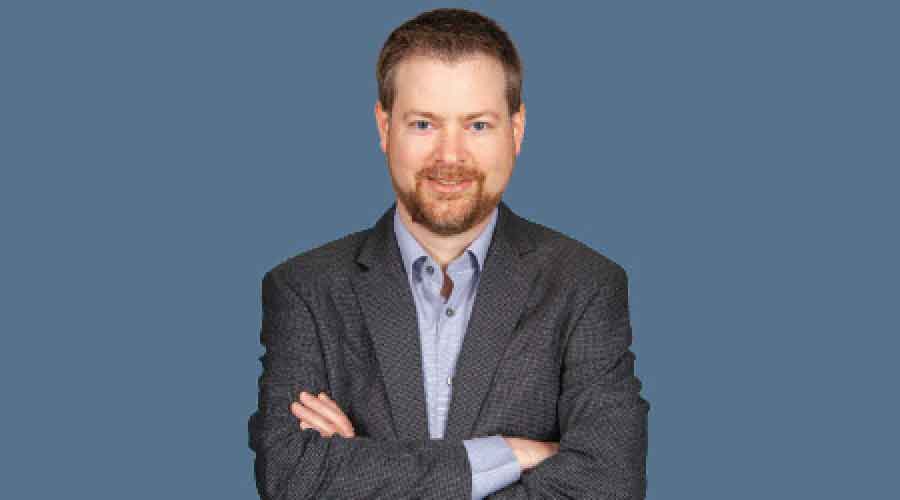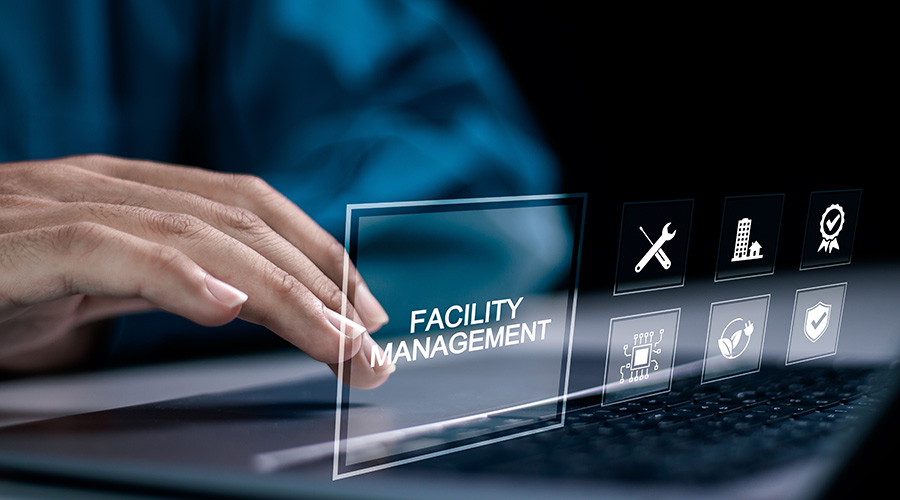 Likins Residence Hall features collaborative learning tools and a building dashboard, a custom-designed website and kiosk that allows students to monitor that hall’s energy and water usage.University of Arizona
Likins Residence Hall features collaborative learning tools and a building dashboard, a custom-designed website and kiosk that allows students to monitor that hall’s energy and water usage.University of ArizonaTraining, Hands-On Experience Critical for FMs as Competencies Shift
Kopach wants his team (including student interns) to understand not just the mechanicals, but the economics of energy efficiency and data management, as well.
The complexities of this sophisticated system require a shift in many of the competencies of those in the FM departments. It means changing how human resources are allocated, as well. “We plan to triple the size of our internal IT group,” says Kopach. “Our facilities rely so much more on computers and control now.”
This is a shift that mirrors the facility management profession at large — fewer wrenches, more iPads. And for Kopach, who also happens to be the incoming president of APPA, training internal staff and keeping those with expertise is an extremely high priority.
“We want to make sure the operators understand not just the mechanicals, but the economics of what we’re doing, as well,” says Kopach. As an example, St. Onge mentions the training required to allow operators to know when to bring on another chiller, based on the real-time data. In the past, they wouldn’t know whether a particular time was optimal or not, and that lack of information was expensive. Thermal ice storage is another example: “When it’s 110 degrees during the day, we’re making ice at night and melting it during the day,” says Kopach. “Our operators must understand this process, how to make it most efficient, and why it saves us money.”
Kopach talks frequently about “collective intelligence,” which is less something out of a sci-fi novel and more simply making sure everyone is in the know as much as possible. “We must harness and share information with each other, with each group in our operation, constantly,” he says. Kopach and his utilities guru, St. Onge, meet three times per week to review utility data. And Kopach has an annual summit with his building managers to review the state of facilities, utilities data, and operations and maintenance benchmarks. He says some of the university’s business managers also attend because he wants them to understand the real costs of running facilities on such a large scale, but also how efficient and how much improvement he and his team have made over the years.
Hands-on experience
Engineering students are frequent interns in the facilities department, as well. “We want them to get an understanding of what it takes to run a plant,” says St. Onge. “We want them to have a full understanding of mechanical systems.”
Indeed, there’s no substitute for hands-on. Kopach recalls a recent conversation with a junior engineering student, who told him he just wasn’t connecting to the material in class. But once he started interning and working with the campus’s chillers and boilers, the lightbulb went on, and he realized it was something he not only understood, but wanted to do long-term.
Kopach sees this anecdote as really important: Getting the next generation of FMs off the ground is nearly a moral imperative. “Building automation technicians are a hot commodity these days, and the university has limitations in what it can pay,” says St. Onge. “We need to develop talent in house, and work with human resources to see where we can bring in entry level technicians. Then team those people up with our veterans.”
This approach also helps create the culture Kopach wants to engender — that of running his facility organization like a family business. “We want a staff who want to engage and learn, and are open to new suggestions,” he says. “We want people who are willing to learn new stuff.”
Email comments to greg.zimmerman@tradepress.com.
Related Topics:















